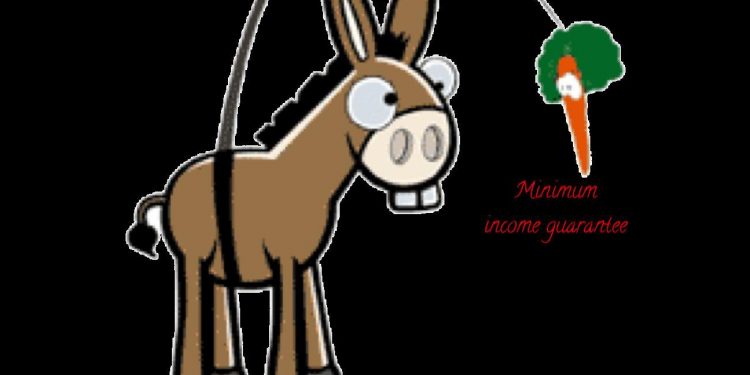A recent cartoon depicted two squatting farmers discussing that with the PM-KISAN and KALIA type programmes, elections ought to be held every two years. The joke obviously was that almost all Indian politicians recollect the existence of the poor just prior to polls. Early 2019 is one such memorable period. Again India’s large army of poor is being wooed. The attractive offers that are being showered on the poor and the farmers are an indication that bad human elements control democracy. Such untimely rain of goodies is at a huge cost to the nation’s future. There is a saying that ‘We borrow our tomorrow from our children’. If this thought is to be believed, then the present generation of Indian leadership, in all walks of life, is keen on creating a dark legacy for the future generations of this country.
When a nation opts to dole out sops to citizens that do not really improve their lot, without a matching effort to mobilise resources, essential requirements of the country cannot be met. Congress president Rahul Gandhi has come up with a pre-poll offer of up to Rs 6,000 per month to five crore BPL families across the nation, its benefits aimed to reach as high as 25 crore citizens; meaning a quarter of the huge, bulging Indian population. The Congress has named the scheme NYAY (playing on the Hindi word for justice), the full form being Nyunatam Aamdani Yojana. The offer is styled as a Minimum Income Guarantee scheme. This would mean if a family could earn, say, Rs 2,000 a month, it would get another Rs 4,000 free from a proposed, newly created government fund. The figure is arrived at by the Congress party on the premise that a family requires Rs 12,000 a month for a comfortable living, and at least half this amount could be made by the family one way or the other. The plan will supposedly be a new step forward in eliminating poverty.
Some 30 years after Indira Gandhi gave the Garibi Hatao slogan, the Sonia Gandhi-Manmohan Singh team came up with a massive Food Security Scheme under which free or subsidised rice would be distributed to BPL families across the nation. It is claimed that much of this rice may be entering the black market and a substantial part of it is sold commercially at higher prices. Following in the footsteps of Modi’s PM-KISAN, the Congress president has said that the Minimum Income Guarantee scheme would ensure direct transfer of money to beneficiaries via their bank accounts.
The announcement by Rahul Gandhi came within a few weeks of the Modi government announcing pension schemes for small-scale farmers and the unorganised labour – Rs 6,000 a year to farmers and Rs 2,000 per month to labourers. The first installment distributed in haste to farmers, Rs 2,000 each, was seen as a lure for the approaching polls. However, the Congress has now outwitted Modi in the BJP’s own game to win votes.
Indian voters exercise their franchise mostly on the basis of ground-level situations affecting their lives. For instance, if the prices of essential commodities like onion or fuel go up, the ruling party takes a beating. By a stretch of one’s imagination, the pension schemes announced by Modi and Income Guarantee scheme promised by Rahul Gandhi may help them fetch votes. All the same, general elections are a game involving very many aspects and Indian voters can be expected to gauge the merits and demerits of supporting one or the other party based on ground realities that ultimately shape individual preferences.
What is noticeable this time is the people in general are not enthused by the approach of the election season. It could be that they are fed up with the raining of promises during every election phase, and life still being as usual and more difficult as days pass. This is also reason why major political parties are approaching the polls with new, fanciful offers and are not in a position to woo the people by saying how they performed while they were in power. If these offers will ultimately be implemented and the national exchequer is left empty, it could ring in terrible times for the country.







































